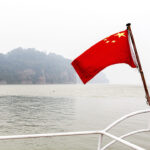BOGOR, Indonesia (MindaNews / 10 December) – A poll official in the Bangsamoro region has called on the voters not to sell their votes not only because it is illegal but because it increases the cost of politics that could be recouped by the winning candidates through corruption in office.
At the same time, Atty. Ray Sumalipao, director of the Commission on Elections (Comelec) in the Bangsamoro Autonomous Region in Muslim Mindanao (BARMM), appealed to the different stakeholders and the general public to help curb vote-buying in the coming parliamentary elections, as well as in the midterm national and local polls.
“Definitely that would lead to corruption by the elected leaders if they spend a lot of money (to buy votes). We should focus on this,” he told MindaNews at the sidelines of the Democracy Action Partnership (DAP) held here from December 9 to 10.
Sumalipao was among the Philippine delegation – coming from the Bangsamoro parliament, Comelec national office, civil society organizations and media – who attended the summit themed “Transforming the Cost of Politics for Better Representation.”
Organized by the Westminster Foundation for Democracy (WFD), a United Kingdom body working to strengthen democracy around the world, the summit tackled the “Cost of Politics,” a body of research that involved 27 countries so far.
The cost of politics is how much it costs to run for office and the funds needed by a candidate to maintain that office, according to WFD.
Among the key findings of the research is that the most pronounced costs are incurred during the election campaign period and that in many contexts, candidates are spending substantially to win an election than they earn when in office.
“As elections are getting more expensive and candidates expect that trend to continue with each election cycle, the risk of corruption is heightened,” Tanja Hollstein, WFD Head of Practice – Elections, said in presenting the research.
Hollstein noted, among others, the need to strengthen or develop campaign finance law and regulations, including caps on campaign expenditure by individuals and parties, to be enforced by an independent monitoring body.
Sumalipao said that combating vote-buying is not the job only of the Comelec “but everyone’s cooperation is needed.”
“We encourage even the voters … the media and other stakeholders to do their roles in the prevention of vote buying,” he said.
Based on Article 12 of the Omnibus Election Code, vote-buying and vote-selling are election offenses punishable by imprisonment of not less than one year but not more than six years – apart from other penalties provided by law.
Sumalipao said the Bangsamoro Electoral Office is preparing for next year’s historic parliamentary elections even if there are moves in Congress to reset it to May 2026.
While there have been convictions, he admitted the Comelec has been having a hard time prosecuting vote buying cases “as witnesses tend to lose interest when the hearing takes up a long time.”
In the “Cost of Politics” in Indonesia, which was presented by Ella Syafputri Prihatini, an assistant professor of Political Science at the Universitas Muhammadiyah Jakarta and a research fellow at the University of Western Australia, it noted that vote-buying range from IDR 100,000 – 500,000 (P365 – P1,800)
“Vote-buying culture in Indonesian politics has increased political costs, with politicians and citizens accepting the practice of distributing gifts and money incentives in exchange for votes,” she said.
Prihatini added that campaign spending of a parliamentary candidate could be almost eight times the annual salary of a legislator, hence could heighten the risk of corruption while in office just to recoup those expenses.
According to the research paper, the respondents openly admitted to distributing money in envelopes to buy votes through their campaign teams while others claimed “that only their political opponents did so.”
Cynthia Guerra, WFD Bangsamoro head, said the DAP forum provides a space for exchanges to strengthen international collaboration on locally identified democratic governance issues, including elections.
“It provided an opportunity for different stakeholders to share different countries’ experiences and how to learn from each country,” she said.
She noted the WFD has been supporting governance initiatives in the BARMM as a manifestation of the commitment of the UK government to support the Comprehensive Agreement on the Bangsamoro (CAB).
The Philippine government and the Moro Islamic Liberation Front signed the CAB in 2014 after 17 years of peace negotiations.
Its key component is the creation of an autonomous Bangsamoro region, which was established in 2019 following the ratification of Republic Act 11054 or the Organic Law for the BARMM. (Bong S. Sarmiento / MindaNews)



